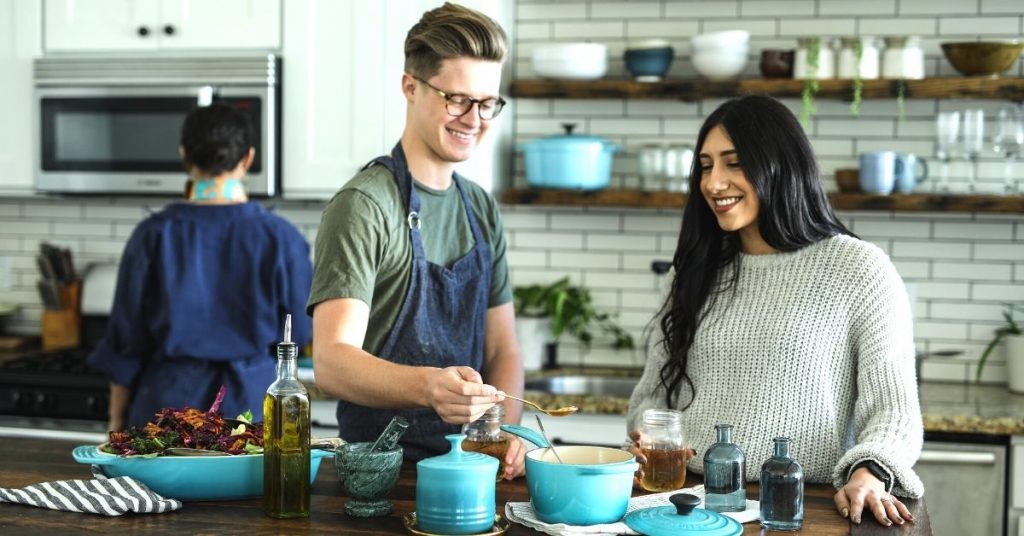By: Amy Cheng
Healthy eating is often linked to better mental health but a new study has revealed that the act of cooking healthy meals can also benefit our mental health.
The research from Edith Cowan University in Perth followed 657 participants taking a seven-week healthy cooking course at Jamie’s Ministry of Food, a community-based program in Western Australia.
At the completion of the course, the participants had better confidence in cooking along with significant improvements in general and mental health.
Cooking Simple Meals
While cooking itself is a rewarding activity, lead researcher Dr Joanna Rees believed there are particular benefits to cooking a simple meal.
“Being able to just knock up a healthy meal from scratch in 30 minutes is very rewarding, in the respect that it’s not fancy cooking but it’s everyday cooking,” she said.
“I think what puts people off quite often is perhaps that they’re frightened by complicated recipes and expensive ingredients. And if it goes wrong, then it’s cost a lot of money and it’s all very disastrous.”
“Cooking doesn’t have to be complicated, it doesn’t have to be difficult, you don’t have to be a good chef to cook a decent meal,”
– Dr Joanna Rees, lead researcher
When we’re feeling down, we like to reach for comfort foods like chocolate and chips, however, Dr Rees said healthy cooking could prevent that from happening.
“A lot of people think when they’re feeling down, then they reach for comfort food,” she said. “But this is more about the protective nature of eating well to try and avoid actually the feeling down period and then that slide.
“Everyone will have times when they’re feeling down, but if their diet is generally healthy before, it may happen less often.”

Moving Away from Convenience Food
Increasing pressures from busy work-life schedules have created a demand for convenience and fast food, according to the study.
This has resulted in a reliance on ready-made meals that often have high levels of salt, sugar and saturated fat and are lacking in nutrients.
“This particular program showed that you can cook the same food in the same amount of time, but you’ve made it yourself, so you know what’s gone into it and you know it’s healthy ingredients,” Dr Rees said.
“Cooking doesn’t have to be complicated, it doesn’t have to be difficult, you don’t have to be a good chef to cook a decent meal.
“You just need to give it a go and look at simple things because simple things are easier to achieve.
“So, start with real basic foods and just be more aware of how important cooking is in your wellbeing.”
“Cooking programs could be a means to helping with both the obesity problem or the general trend towards unhealthy food habits.”
Long-term Benefits of Healthy Cooking
The participants of the study were followed up six months after the cooking course and the improvements to their mental health had sustained over that period. Dr Rees believed there could be benefits to setting up targeted cooking programs.
“Cooking programs could be a means to helping with both the obesity problem or the general trend towards unhealthy food habits and also to help improve mental health as well,” she said.
“If we were to target cooking programs at specific audiences, with perhaps poorer mental health or lower cooking confidence… then these benefits might be even greater.”
Dr Rees and her team are currently looking at the relationship between the gut microbiome, which helps control digestion, and cooking confidence and its impact on mental health.
Article supplied with thanks to Hope Media.
Feature image: Photo by Maarten van den Heuvel on Unsplash
